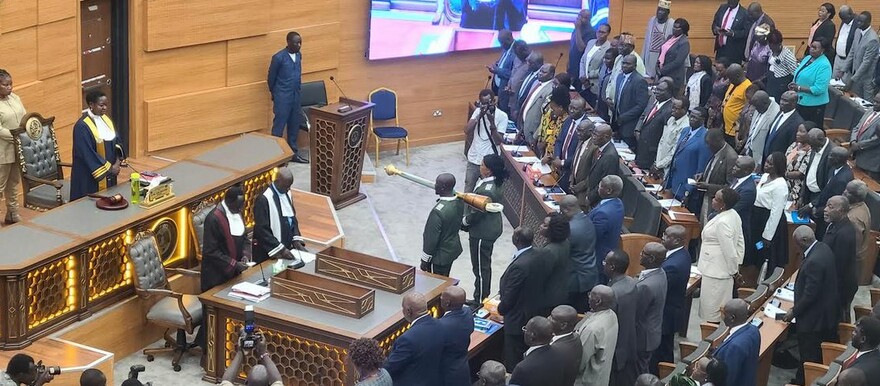As South Sudan’s elections slated for December 2024 draw nearer, the Revitalized Joint Monitoring and Evaluation Commission (RJMEC) has reiterated calls for the Transitional National Legislative Assembly (TNLA) to expedite the enactment of all pending bills in the House.
RJMEC made the call on Monday during the presentation of its quarterly report on the implementation of the peace agreement to the TNLA.
The peace monitoring body emphasized the need for parliament to focus on the National Security Services Act Amendment Bill as one of the critical bills required by the peace agreement to create a conducive atmosphere for the General Elections.
Presenting the report on behalf of RJMEC Interim Chairperson Amb. Gen. Charles Tai Gituai, Ambassador Berhanu Kebede, the RJMEC deputy chief of staff, called on the National Legislature to urgently support the elections by passing the pending bills.
“Expedite the enactment of all pending amendment bills, including the National Security Service, NGO, and Transitional Justice Bills,” he said.
Kebede also called on the parliament to support the process of funding the constitution-making process.
“Support the process of funding the constitution and election-making process by supporting passage of bills to secure their operationalization,” he added.
RJMEC, in its quarterly report to the parliament, noted with concern that with less than ten months to the elections, the agreement still has critical provisions that are yet to be implemented.
“The work undertaken now, in these first few months of the year, will have a great impact on what happens at the end of the year,” he said. “Completing this work efficiently and diligently will help in paving the way for a smooth transition as set out in the revitalized peace agreement.”
“Failure will jeopardize the hard-won relative peace of the country, therefore falling far short of laying the foundation for a united, peaceful, and prosperous society based on justice, equality, respect for human rights, and the rule of law as the Parties promised in the Agreement’s Preamble,” Kebede warned.
He said that much of the work towards the successful holding of elections centers around the completion of the security arrangements, developing the permanent constitution and beginning electoral-related work such as the voter’s registry and establishment of subsidiary electoral management bodies at the state level.
“There is also the aspect of hold-out groups that need to be considered,” he stressed. “As long as holdout groups are not part of the peace process or elections, ensuring sustainable peace in South Sudan will continue to prove challenging.”




